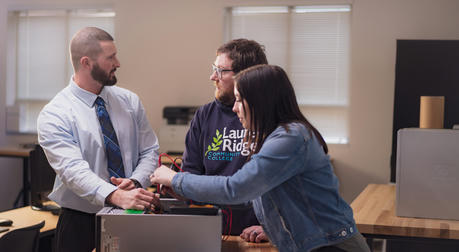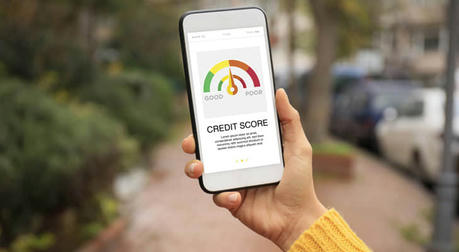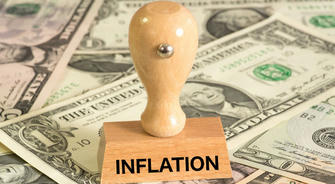-
 courses
coursesData Reveals: Which U.S. Certification Programs Lead to Immediate Employment and Rapid Salary Growth
In the U.S., labor unions have long been a gateway to high wages, strong benefits, and job security for blue-collar workers. Many assume union jobs require advanced degrees or special connections—but that’s far from the truth! In 2025, unions across multiple industries are offering apprenticeship programs with paid training, opening doors for those without formal education to enter high-demand trades like electrical work, plumbing, and construction.
-
 Courses
CoursesHow long does CDL truck driver training take, how much does it cost, and how much can you earn?
Truck drivers play a vital role in the U.S. economy. From food and clothing to raw materials and building supplies, much of what people use every day arrives by truck. As demand for shipping continues to grow, especially through online commerce and supply chain expansion, the need for qualified commercial drivers remains strong.
Becoming a truck driver starts with earning a CDL—Commercial Driver’s License. For those considering this path, it’s important to understand the training timeline, total cost, career outlook, and potential earnings. This article presents a detailed and realistic guide to CDL training in 2025 and what to expect once certified.
-
 Courses
CoursesFast Track to Employment: Which Vocational Training Gets You Hired Immediately?
In today's competitive job market, vocational training programs are gaining recognition as reliable pathways to stable careers. Backed by authoritative data and research, these career-focused education options offer shorter training periods and higher employment rates than many traditional degree programs. Let's examine three of the most employment-focused vocational fields with verifiable outcomes.
-
 Courses
CoursesThe Top 5 Highest-Employment-Rate Vocational Training Programs in the U.S.
In today’s competitive job market, vocational training programs offer a fast and effective path to stable employment. Unlike traditional four-year degrees, which often require significant time and financial investment, career-focused training programs provide hands-on skills that are in high demand.
According to the U.S. Bureau of Labor Statistics (BLS) and recent workforce studies, certain vocational courses lead to jobs with employment rates exceeding 90%. Here are the five highest-employment-rate vocational training programs in the U.S. and why they’re worth considering.
-
 Housing
HousingHow to navigate the gap between residential and investment properties in the US
For generations, homeownership has been deeply woven into the fabric of the American dream. But in today's complex real estate landscape, the decision to purchase property involves far more than just planting roots - it's a significant financial strategy that requires careful consideration. According to a 2023 Harvard Joint Center for Housing Studies report, while homeownership rates have stabilized around 65%, the financial calculus behind buying has become increasingly nuanced due to rising interest rates and shifting market dynamics.
-
 Housing
HousingUncovering the surprising differences in monthly rent in New York, Texas, and California
When it comes to renting in America's most iconic states, the differences go far beyond stereotypes. Drawing on the latest housing data, expert analysis, and real resident experiences, we reveal what your rent dollar actually buys in New York, California, and Texas.
-
 Housing
HousingUnderstanding U.S. Property Taxes and Smart Strategies to Reduce Them
Property taxes are a significant expense for homeowners in the United States, yet many people don’t fully understand how they work—or how to minimize them legally. Whether you're a first-time homebuyer, a long-time homeowner, or a real estate investor, knowing how property taxes function and how to optimize your tax burden can save you thousands of dollars over time.
According to the Lincoln Institute of Land Policy, U.S. homeowners paid over $360 billion in property taxes in 2023, with effective rates ranging from 0.31% in Hawaii to 2.23% in New Jersey. This guide breaks down the essentials of U.S. property taxes and provides actionable, legally sound strategies to reduce your bill.
-
 Loans
LoansI Just Wanted To Borrow Some Money—But Ended Up Trapped In A 12-Month Repayment Nightmare: A Loan Experience Dissected
In today’s digital age, borrowing money has become incredibly easy. With a few taps on a smartphone, anyone can access instant credit. However, what often seems like an easy fix can quickly lead to a financial quagmire. This is the story of how a seemingly simple loan turned into a 12-month repayment nightmare—and what you can learn from it to avoid falling into the same trap.
-
 loans
loansAmerican Retirees Beware! "Pension Loan" Scams Rampant - 2024 Fraud Prevention Guide
Financial scams targeting retirees are growing at an alarming rate in the United States. According to the latest Federal Trade Commission (FTC) data, financial fraud against seniors caused $3.8 billion in losses in 2023—a 25% increase from 2022. Among these, "pension" or "retirement fund" loan scams are particularly prevalent. This article will analyze how these scams operate and provide practical prevention measures.
-
 Loans
LoansCan You Really Get a Loan With a Bad Credit Score? A Realistic Look at Your Options?
A low credit score doesn’t have to mean financial dead ends—but it does mean you need to be strategic. While mainstream banks often reject applicants with poor credit, alternative lending options exist. However, not all of them are wise choices.
To give you a well-rounded perspective, we’ll break down:
Why some lenders approve bad credit borrowers (and others don’t)
Legitimate loan options vs. predatory traps
How to improve approval odds—without falling into debt cycles
Let’s separate fact from fiction.




